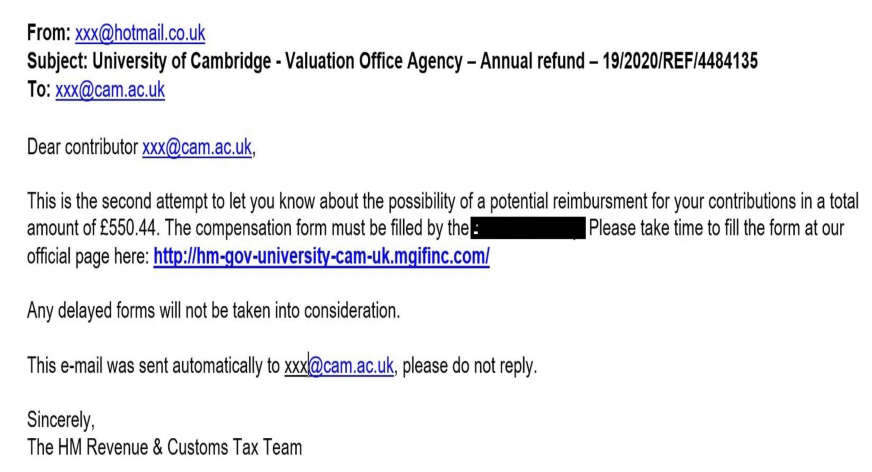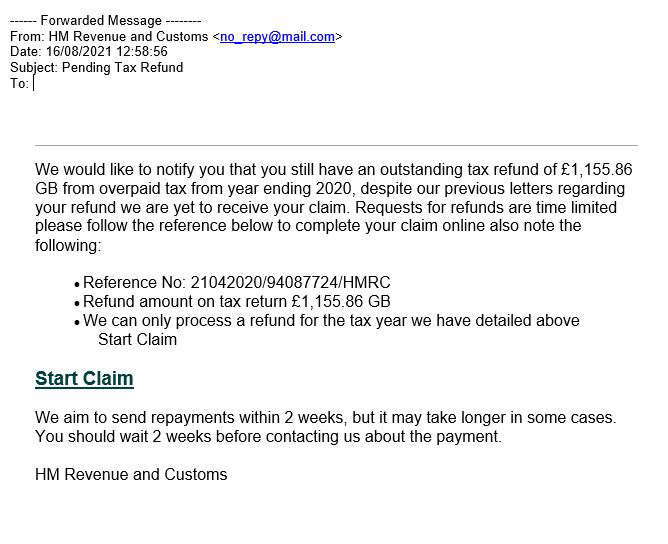
HM Revenue and Customs (HMRC) is warning those with part-time jobs are at increased risk.
Higher numbers of students going to university this year means more young people may choose to take on part-time work. Being new to interacting with HMRC and unfamiliar with genuine contact from the department could make them vulnerable to scams.
In the past year almost 1 million people reported scams to HMRC.
Nearly half of all tax scams offer fake tax refunds, which HMRC does not offer by SMS or email. The criminals involved are usually trying to steal money or personal information to sell on to others. HMRC is a familiar brand, which scammers abuse to add credibility to their scams.

An example of a scam email.
Links or files in emails or texts can also download dangerous software onto a computer or phone. This can then gather personal data or lock the recipient’s machine until they pay a ransom.
Between April and May this year, 18 to 24-year olds reported more than 5,000 phone scams to HMRC.
Mike Fell, Head of Cyber Security Operations at HMRC, said:
“Most students won’t have paid tax before, and so could easily be duped by scam texts, emails or calls either offering a ‘refund’ or demanding unpaid tax.
“Students, who will have had little or no interaction with the tax system might be tricked into clicking on links in such emails or texts.
“Our advice is to be wary if you are contacted out of the blue by someone asking for money or personal information. We see high numbers of fraudsters contacting people claiming to be from HMRC. If in doubt, our advice is – do not reply directly to anything suspicious, but contact HMRC through GOV.UK straight away and search GOV.UK for ‘HMRC scams’.”


 Serious collision between a car and cyclist near a Nuneaton business park
Serious collision between a car and cyclist near a Nuneaton business park
 People treated for smoke inhalation after fire in Nuneaton
People treated for smoke inhalation after fire in Nuneaton
 Thousands of pounds worth of equipment donated to George Eliot Hospital
Thousands of pounds worth of equipment donated to George Eliot Hospital
 Appeal as man has extensive leg injuries after collision in Bedworth
Appeal as man has extensive leg injuries after collision in Bedworth
 Family of man killed on M1 pay tribute to ‘beloved dad, stepdad, partner, son, grandson and brother’
Family of man killed on M1 pay tribute to ‘beloved dad, stepdad, partner, son, grandson and brother’
 Councils will need to prove pothole action to get extra Government cash
Councils will need to prove pothole action to get extra Government cash







